Rifen 100 mg/ml solution for injection for horses, cattle and swine 100ml.Treatment of piglets with ketoprofen before castration reduces post operative pain for 1 hour.Rifen 100ml To obtain pain relief during surgery co-medication with an appropriate anaesthetic/sedative is needed.Rifen 100ml
Uses
Horse
Diseases affecting the osteoarticular and muscular-skeletal system associated with acute pain and inflammation:
– Lameness of traumatic origin
– Arthritis
– Osteitis, spavin
– Tendinitis, bursitis
– Naviculitis
– Laminitis
– Myositis
Ketoprofen is also indicated for post-surgical inflammation, symptomatic therapy of colic and fever.
Cattle
Diseases associated with inflammation, pain or fever:
– Respiratory diseases
– Mastitis
– Osteoarticular and muscular-skeletal disorders such as lameness, arthritis and to ease uprise post parturition
– Injuries
Swine
Diseases associated with inflammation, pain or fever:
– Treatment associated with the Postpartum Dysgalactia Syndrome/Mastitis Metritis Agalactia (MMA) Syndrome
– Respiratory tract infections
– Symptomatic treatment of fever
For the short-term relief of post operative pain associated with minor soft tissue surgery such as castration in piglets.
Where necessary ketoprofen should be combined with appropriate antimicrobial therapy.
Dosage and administration
Horse:
2.2 mg ketoprofen/kg body weight/day intravenously once daily, for up to 3 to 5 consecutive days, i.e. 1 ml per 45 kg body weight.
In order to treat colic one injection is normally sufficient. A second administration of ketoprofen requires a reassessment of the patient’s clinical status. See below ‘Advice on correct administration’.
Cattle:
3 mg ketoprofen/kg body weight/day intravenously or deep intramuscularly once daily for up to 3 consecutive days, i.e. 3 ml per 100 kg body weight.
Swine:
3 mg ketoprofen/kg body weight as a single deep intramuscular injection, i.e. 3 ml per 100 kg body weight (= 0.03 ml/kg).
For reduction of post-operative pain the product should be injected 10 – 30 minutes before surgical intervention.
Particular care should be taken with regard to the accuracy of dosing including the use of an appropriate dosing device (i.e.: low dose syringe) and proper determination of body weight.
Advice on correct administration
Avoid intra-arterial injection. Do not exceed recommended dose or period of treatment. Special care should be taken when administering the product to animals with severe dehydration, hypovolaemia and hypotension as there is a potential risk of increased renal toxicity.
The use of ketoprofen is not recommended in foals under the age of 15 days. Use in animals less than 6 weeks of age or in aged animals may involve additional risk. If such use cannot be avoided, animals may require a reduced dosage and careful management. See ‘use during pregnancy and lactation’ regarding the use of the product in pregnant mares and sows.
Sufficient drinking water must be supplied at all times during treatment.
In colic, a subsequent dose may be given only after a thorough re-examination.
Contra-indications, warnings, etc
Do not use in case of hypersensitivity to the active substance, or to any of the excipients. Do not use in animals suffering from gastrointestinal lesions, haemorrhagic diathesis, impaired hepatic, renal or cardiac function. Do not use with other NSAID drugs concurrently or within 24 hours of each other.
Adverse reactions
Due to the mechanism of action of NSAIDs (inhibition of prostaglandin synthesis), gastric and intestinal irritation or ulceration or renal intolerance may occur even after appropriate use.
Intramuscular injections may occasionally cause transient irritation.
Repeated administration to swine may result in reversible inappetence.
Allergic reactions may occur very rarely. In this case the treatment should be stopped.
If you notice any serious effects or other effects not mentioned in this leaflet, please inform your veterinary surgeon.
Special warnings
Treatment of piglets with ketoprofen before castration reduces post operative pain for 1 hour. To obtain pain relief during surgery co-medication with an appropriate anaesthetic/sedative is needed.
Use during pregnancy and lactation
Can be used during pregnancy in cattle but should not be used in pregnant mares. In absence of studies on swine use only according to the benefit/risk assessment by the responsible veterinarian.
Can be used in lactating cows.
Interaction with other medicinal products
The product must not be administered in conjunction with, or within 24 hours of administration of other NSAIDs and glucocorticoids. Concurrent administration of diuretics, nephrotoxic drugs and anticoagulative drugs should be avoided.
Ketoprofen is highly bound to plasma proteins, and may displace or be displaced by other highly protein bound medicines, such as anticoagulants with the possibility of consequent toxic effects due to the unbound fraction of the drug. Due to the fact that ketoprofen may inhibit platelet aggregation and cause gastrointestinal ulceration, it should not be used with other medicines that have the same profile of adverse drug reactions.
Overdose
Overdose with NSAIDs can lead to gastrointestinal ulceration, loss of proteins, hepatic and renal impairment.
Early signs of toxicity include loss of appetite and pasty faeces or diarrhoea. If overdose symptoms are observed, symptomatic treatment should be initiated.
Incompatibilities
In the absence of compatibility studies, this veterinary medicinal product must not be mixed with other veterinary medicinal products.
To the user
In case of accidental self-injection, seek medical advice immediately and show the package leaflet or the label to the physician. People with known hypersensitivity to ketoprofen or benzyl alcohol should avoid contact with the veterinary medicinal product.
Avoid splashes on the skin and eyes. Rinse thoroughly with water should this occur. If irritation persists seek medical advice. Wash hands after use.
Withdrawal period
Meat and offal: 4 days
Milk (cattle): Zero hours
Pharmaceutical precautions
Keep out of the reach and sight of children.
Keep the vial in the outer carton in order to protect from light.
Do not use after the expiry date stated on the label.
After first opening the container do not store above 25°C. Shelf-life after first opening the container: 28 days.
When the container is broached (opened) for the first time, using the in-use shelf-life which is specified on this package leaflet, the date on which any product remaining in the container should be discarded should be worked out. This discard date should be written in the space provided on the label.
Any unused product or waste materials derived from such veterinary medicinal product should be disposed of in accordance with national requirements.
Legal category
Legal category: POM-V
Packaging quantities
Package sizes: 50 ml, 100 ml, 10 x 50 ml, 10 x 100 ml
Not all pack sizes may be marketed.
Further information
Ketoprofen is a non-steroidal anti-inflammatory drug. In addition to the anti-inflammatory effect, it also exerts an anti-pyretic and analgesic effect. Ketoprofen is rapidly absorbed after intramuscular administration. Maximum plasma concentration is reached within 30 to 60 minutes. 80 % of the dose administered are eliminated within 12 hours. Rifen 100ml Rifen 100ml Rifen 100ml Rifen 100ml Rifen 100ml Rifen 100ml Rifen 100ml Rifen 100ml Rifen 100ml
Rifen 100ml Rifen 100ml Rifen 100ml Rifen 100ml Rifen 100ml Rifen 100ml Rifen 100ml Rifen 100ml Rifen 100ml Rifen 100ml
Horse: Diseases affecting the osteoarticular and muscular-skeletal system associated with acute pain and inflammation:
- Lameness of traumatic origin
- Arthritis
- Osteitis, spavin
- Tendinitis, bursitis
- Naviculitis
- Laminitis
- Myositis
Ketoprofen is also indicated for post-surgical inflammation, symptomatic therapy of colic and fever.
Cattle : Diseases associated with inflammation, pain or fever:
- Respiratory diseases
- Mastitis
- Osteoarticular and muscular-skeletal disorders such as lameness, arthritis and to ease uprise post parturition
- Injuries
Swine: Diseases associated with inflammation, pain or fever:
- Treatment associated with the Postpartum Dysgalactia Syndrome/Mastitis Metritis Agalactia (MMA) Syndrome
- Respiratory tract infections
- Symptomatic treatment of fever
For the short-term relief of post operative pain associated with minor soft tissue surgery such as castration in piglets.
Where necessary ketoprofen should be combined with appropriate antimicrobial therapy.
Withdrawal times: Meat & Offal 4 days – Milk (cattle)
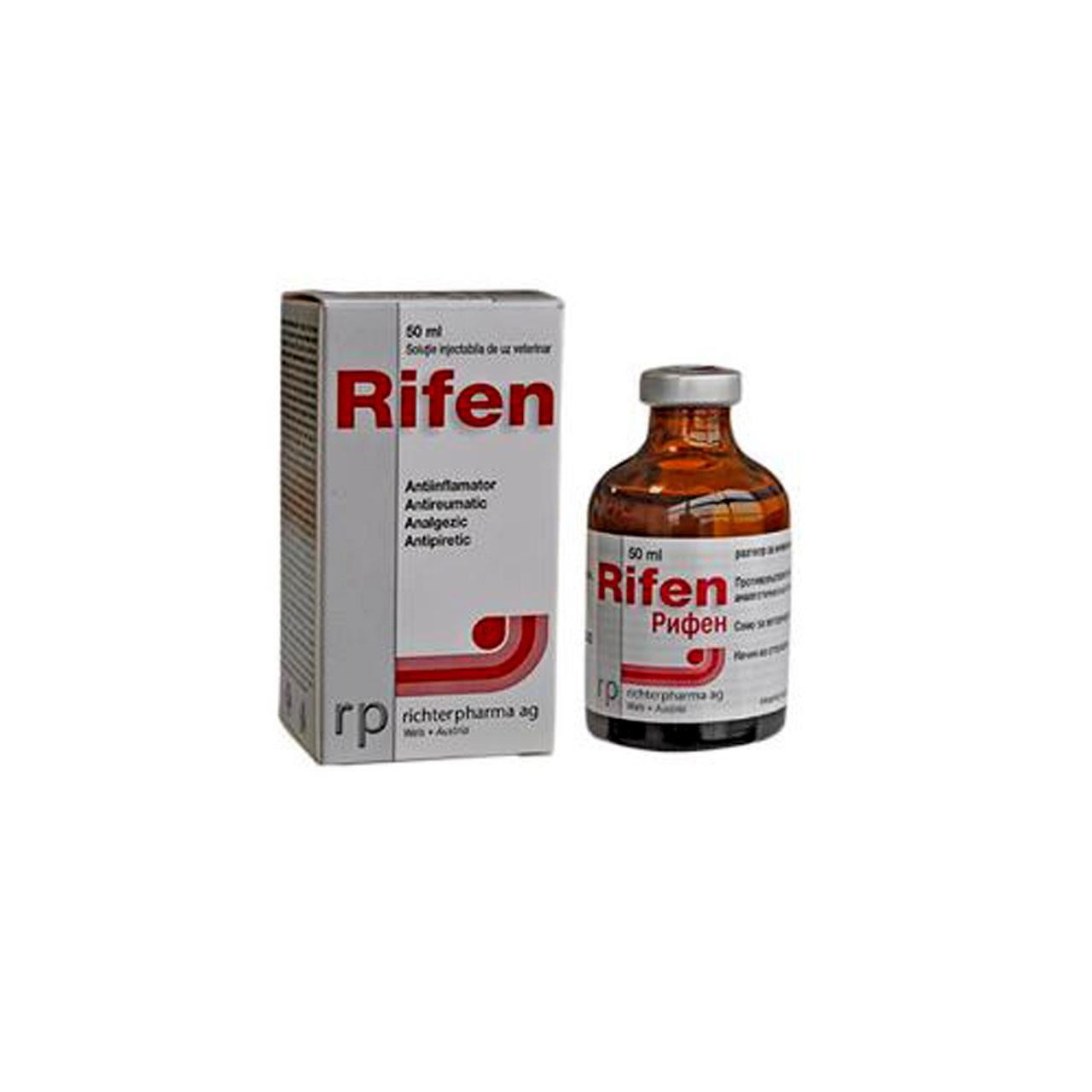
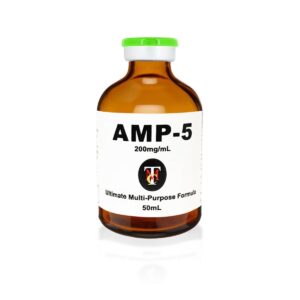
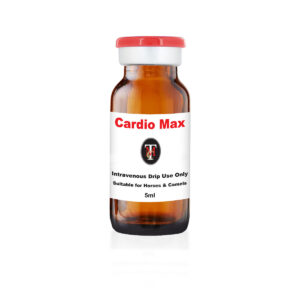
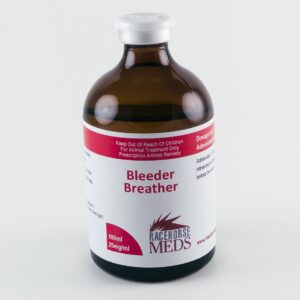
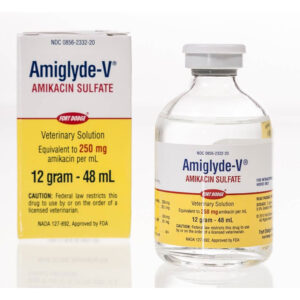
Reviews
There are no reviews yet.